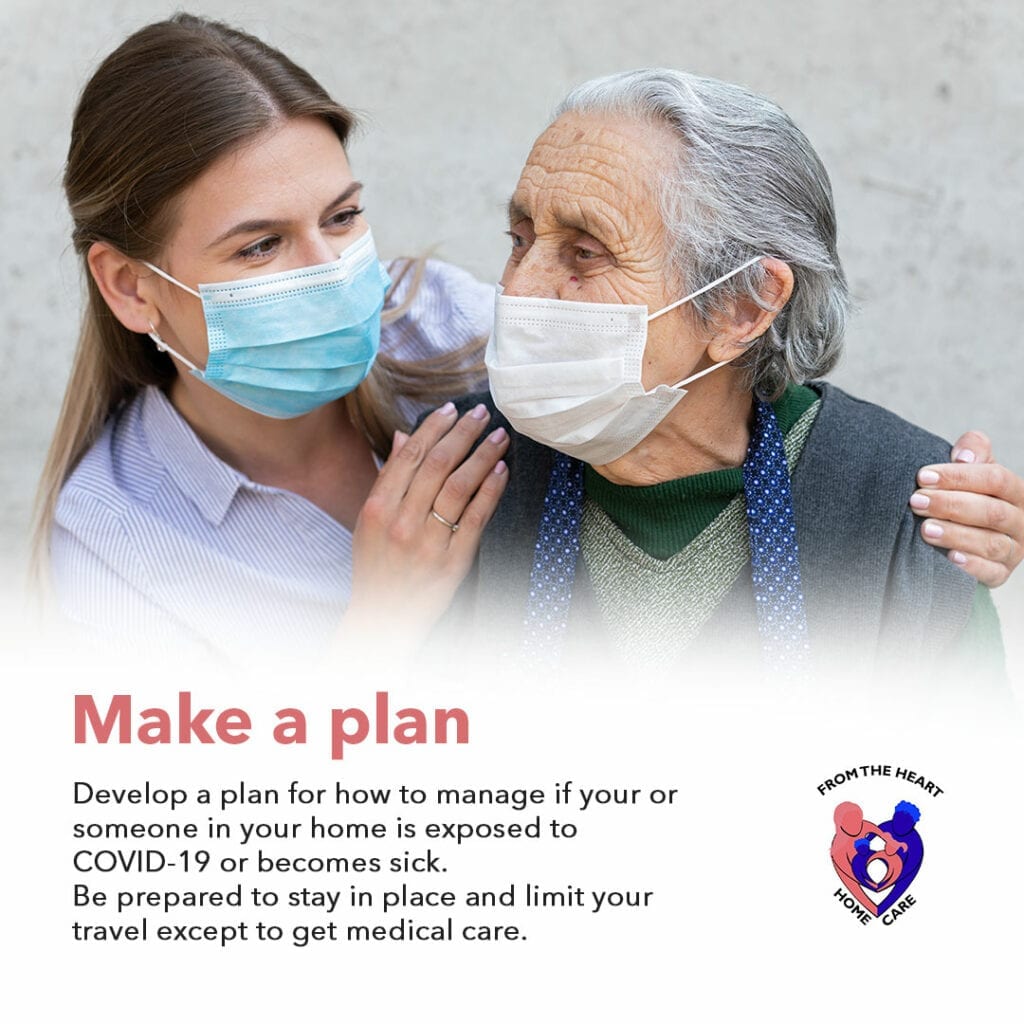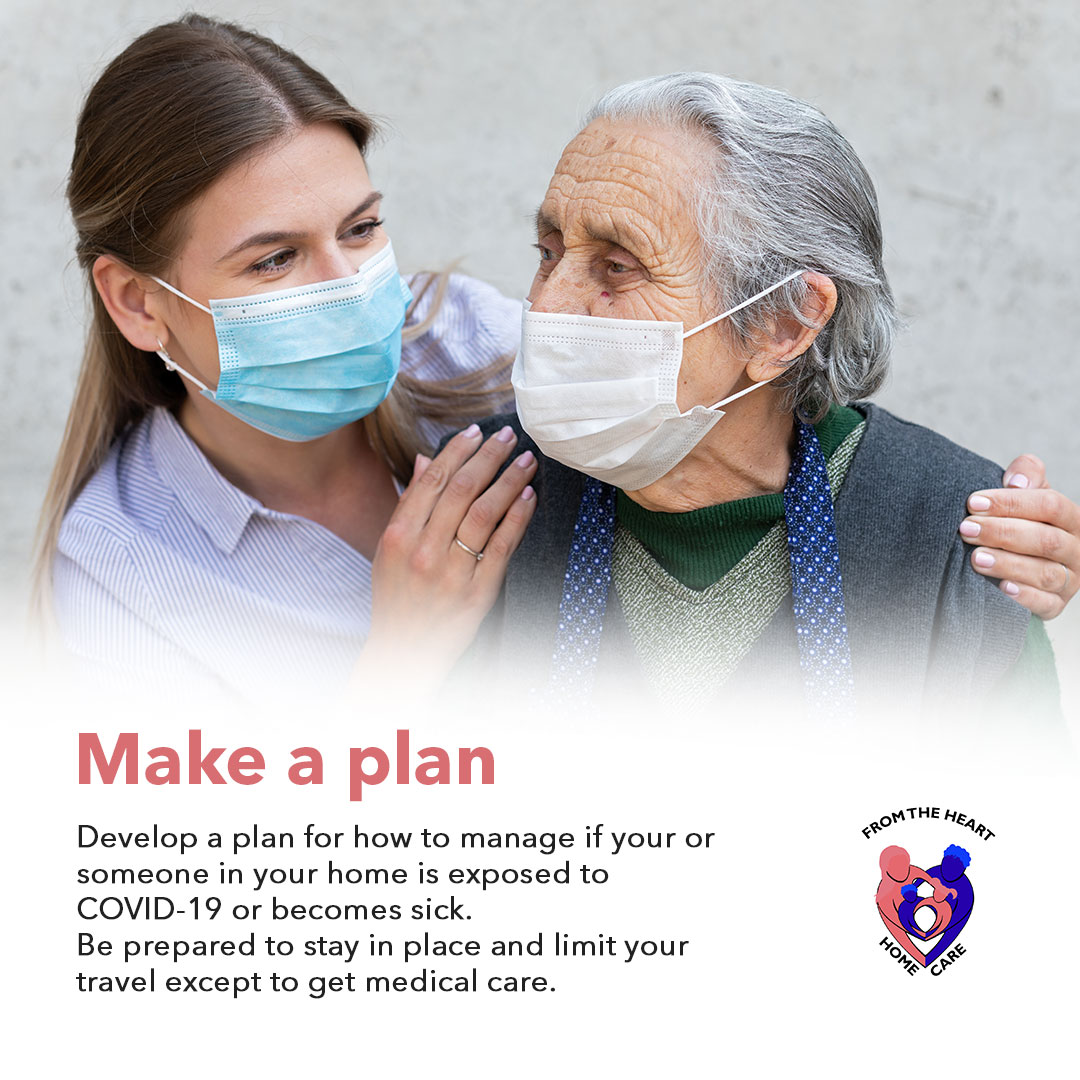
Coronavirus, also known as COVID-19 is an illness developed by infection with the SARS-CoV-2 virus. It spreads between people within close contact (about 6 feet or 1.8 meters). When anybody with the illness coughs, sneezes, sings, talks, or breaths, droplets carrying the virus spread into the air. You can become infected if you breathe in these droplets. Due to the global spread of coronavirus, many people will now need to take certain steps to help reduce their transmission.
How it spreads?
This virus spreads easily from person to person, mainly in the following ways:
o Between people when they come in contact with each other.
o It spreads through respiratory droplets when an infected person coughs, sneezes, breathes, or talks. These respiratory droplets develop an infection when they are inhaled or deposited on mucous membranes.
o People who are infected but do not show symptoms can also spread the virus to others.
o Aerosol transmission can happen in specific settings, particularly in indoor, crowded spaces, where an infected person(s) spend their time with others. It may include restaurants, choir practices, fitness classes, nightclubs, offices, and/or places of worship. More research is underway to better understand the environment in which aerosol transmission is happening outside of medical facilities where medical procedures, called aerosol-generating procedures, are produced.
When do infected people transmit the virus?
Infected people can be contagious and the virus can spread from them to other people Whether or not they have symptoms. Some studies showed that infected people appear to be most infectious just before they show symptoms (namely 2 days before they develop symptoms). People with a severe disease such as stroke surveyors can be infectious for longer periods. It is also possible that someone who never develops symptoms can transmit the virus to others. It is still not fully understand how frequently this occurs and more research is needed in this area.
Tips to stop the spread of Covid-19:
When you interact closely with others who are not in your household for longer periods of time, the risk of spreading COVID-19 is very high. You can spread it before you show symptoms. As I have mentioned earlier some people with the virus never have symptoms, but can still transmit the disease. At this time there is a vaccine trail going on all over the world and no medication is finalized to prevent COVID-19. However, there are many ways to protect yourself and others from getting this virus.
Wash your hands frequently:
You’ve heard it a lot before but I will say it again. You should wash your hands daily for 20 sec. It is one of the most important things you can do to stop the spread. Also, it is the most effective way to prevent illness and infection. Viral particles that stay on your fingers and hands can be spread to other people. You should wash your hands after being out in public or touching a common surface others may have touched. You should also wash your hands after coughing or sneezing, and before cooking and eating. Be sure to wash every part of your hands and fingers and even the tops and wash them for at least 20 seconds. You should use hand sanitizer when you cannot wash your hands.
Wear a Mask and Avoid Crowds:
Try to stay at home as much as possible. You should avoid close contact (at least 6 feet, or about two arms’ length) with people who are not from your household, even if they don’t appear sick, in both indoor-outdoor spaces and adult daycare centers. Some people can spread the coronavirus without the symptoms. The CDC suggests wearing cloth masks or faces coverings in public, especially when other social distancing precautions are difficult to maintain. For instance, if you are working in an adult daycare center as a senior caregiver or going to grocery stores and pharmacies.
Wearing masks in public can help to slow the spread of the virus. It can help keep people who may have the virus and do not know it from spreading it to others. Different face coverings are used as a simple barrier to help prevent respiratory droplets from going into the air when you cough, sneeze, or talk.
Stay home, if you’re not feeling well:
You should limit how much time you spend out in public. It’s unpleasant for many of us to be living this way, but it’s one of the easiest ways to prevent the spread of this virus. It’s also vital over the next few weeks to see if we can decrease the spread of this virus from one person to another.
If it is possible, you should work from home. You should travel by car instead of public transportation whenever possible, and limit traveling for leisure. You should try to keep a positive behavior by catching up on projects when you’re not working. It can be done by watching Netflix shows you haven’t had time to watch.
If you have symptoms of the common cold or flu and are a healthy person with no previous medical conditions, you should try to stay at home. You should let your housemates handle the cooking, cleaning, and laundry. Whenever possible try to isolate yourself in your own area. Social distancing has been proven to be effective in decreasing the spread of infection during many outbreaks in the past.
If your symptoms worsen or you think that you need to be tested for coronavirus, you should call a doctor to see where testing is available. You should avoid just showing up at any care clinic or the emergency room unless you have severe symptoms. It includes high fever, very low body temperature, shortness of breath, confusion, or feels like you might pass out.
Social distancing:
The covid-19 virus could remain on the surface and someone else could touch it and then touch their face, nose, or eyes. That’s why it’s essential to avoid touching public surfaces or at least try to clean them with a disinfectant. Social distancing implies actions taken to slow down the spread of a contagious disease. For an individual, it refers to create enough distance (6 feet or more) between yourself and another senior citizen to avoid getting infected or infecting someone else. By closings libraries, and canceling meetings and larger events we can create social distancing at a community level. It is very important to slow down the rate and number of new coronavirus patients to reduce the risk that large numbers of critically ill patients cannot get life-saving care.
Cough/sneeze etiquette:
Whether you’re under the nice weather or feeling perfectly fine, it’s a good idea to stops all types of touching. It means kissing, hugging, handshakes, high fives, fist bumps, and elbow rubs. If you’re around others, try to keep some space between you at arm’s length. You should cough or sneeze into your elbow or a tissue and then immediately wash your hands. This will help prevent the spread of the virus to other people.
Avoiding touching the face:
You should avoid touching your eyes, nose, and mouth with your hands, especially if they are unwashed. It can help limit the spread of germs and reduce the chance of getting sick. Our hands come into contact with several surfaces throughout the day, and they may get viruses this way. A new study suggests that SARS-CoV-2 can stay on certain surfaces for up to 3 days. If any person touches the face, viruses can transfer to the nose or mouth and enter the body.
Save Personal Protective Equipment for the Front Lines:
You should not buy or stock up on personal protective equipment such as surgical masks and N95 respirators. These things should be reserved for use by health care workers, elderly health care providers, and other frontline workers whose jobs put them at higher risk of being infected with COVID-19.
Limiting contact with others:
You should also take care to avoid coming into close contact with others — especially those who have aging in place, unwell, or have symptoms of the virus. The CDC recommends maintaining 6 feet distance from anyone who is coughing or sneezing. When a person coughs or sneezes, small droplets containing the virus, come from their mouth and nose. When other people breathe these droplets in, they can get infected.
If you are living in a community where coronavirus is spread, the relevant government will likely have additional safety measures on how to implement social distancing. These guidelines may include:
o Working from home
o Limiting contact with anyone who is not a member of the household
o Prohibiting large gatherings of people
o Closing nonessential services
It is especially essential for people at higher risk of getting seriously ill from COVID-19, such as independent living seniors and people with the following underlying health conditions:
o Stroke survivors
o Lung disease
o Diabetes
People at higher risk should take extra precautions, such as self-isolating by staying at home.
Home Isolation:
If you have symptoms of this virus, you should isolate yourself at home and avoid contact with other people, both inside and outside your home. In this way, you can decrease the spread of this illness. It is called home isolation. It is also known as “self-quarantine”).
o You should stay in a specific room and away from others in your home.
o You should use a separate bathroom if you can. Do not leave your home except in any medical emergency.
o You should not while sick. Also do not use public transportation.
o You should keep track of your symptoms. You should also get guidelines on how to check and report your symptoms.
o You should use a face mask or cloth face cover when you see your health care provider. If you are unable to wear a mask due to breathing problems, people in your house should use a mask if they need to be in the same room as you.
o You should avoid contact with pets or other animals. This virus can spread from people to animals
o You should follow the same hygiene practices everyone should follow: You should cover coughs and sneezes and wash your hands regularly. You should not touch your face and don’t share personal items.
o You should try to stay at home, avoid contact with other people, and follow the instructions of your health care provider and local health department about when to finish home isolation.
Be diligent about disinfecting:
You should sanitize all common use surfaces with a disinfectant wipe or spray. It includes countertops, bathrooms, remotes, and computers. You should also clean your mobile phone. If you use the gym, clean all the machines and weights with disinfectant before and after use — and try to maintain a distance of 3 to 6 feet between you and other exercisers.
Avoid eating or drinking in public places:
It is not a good time to go out and eat. So you should avoid restaurants, coffee shops, bars, and other eateries. The virus can be spread through food, utensils, dishes, and cups. It may be temporarily airborne from other people in a crowded place. You can get delivery or takeaway food. You should choose foods that are properly cooked and can be reheated.
Bring down your stress levels:
As we all know that stress can deliver a bad impact on our immune system, so do what you can to remain calm. You should not argue with people on Facebook, which just increases another layer of stress, and consider limiting your time on social media so you avoid bad news and misleading information.







